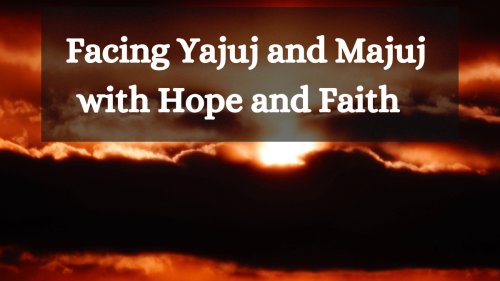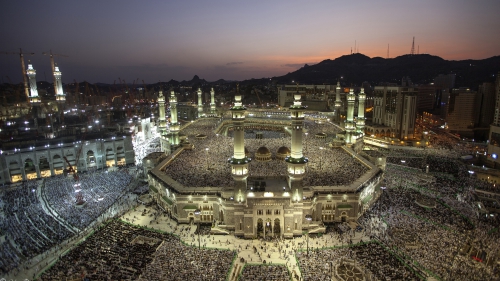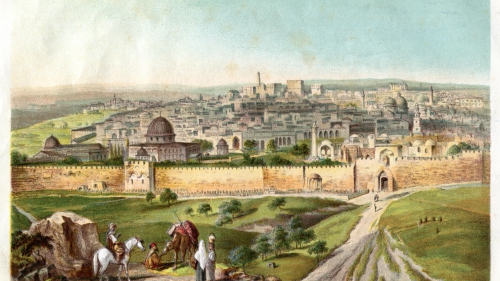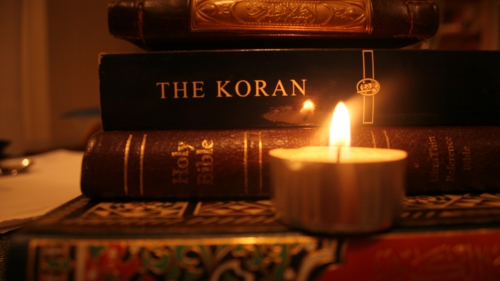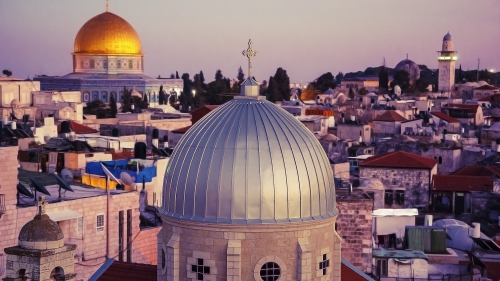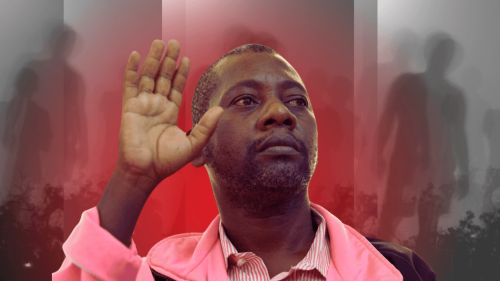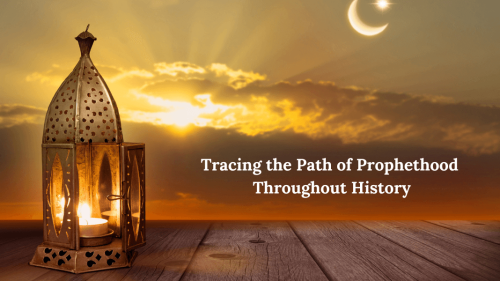Bridging the Divide
 |
This week we commemorate the second anniversary of the terrorist attacks on the World Trade Center and the Pentagon. That tragedy set in motion a dynamic that has had a dramatic impact on American domestic and foreign policy, in particular, on the U.S.-Arab relationship.
Out of the trauma that occurred in the immediate aftermath of 9/11, there came the recognition of a profound gap that divided America and the Arab World. Despite good faith efforts by some to bridge the divide, two years later it is clear that this gap has widened and misunderstanding and distrust have grown.
The combination of fear, ignorance and bad policies have produced a lethal brew.
Fear on both sides was real and needed to be addressed both creatively and emphatically. While some positive steps were taken, they were not enough to counter the overwhelming negative tide that came to define both the American and Arab responses to the crisis.
For its part, Arab leadership did not act vigorously enough to directly address the concerns of average Americans. As rumors about 9/11 circulated in the Middle East, they were not addressed. As Americans continued to watch the tragedy unfold, Arabs were slow to come forward and recognize the gravity of the situation. 19 young Arab men had committed a horrible crime. More than that, they had put an Arab and Islamic face on that crime. As a result, for too many Americans, these 19 came to define Arabs and Islam.
At that moment, early on in the crisis, Americans needed to hear from other Arabs and Muslims, who could have countered the false images and provided an antidote to the growing fear. They heard from Arab Americans, but that was not enough.
American leadership, too, needed to respond differently. To his credit, President Bush did come forward to demand respect for Arabs and Muslims. He vigorously challenged those on both sides of the divide who advocated a "clash of civilizations."
But he was leading a frightened people who had been savagely attacked and so he and others in his Administration sent other messages, as well. While the President presented the conflict in stark "you're with us or against us" terms, his Attorney General unleashed a series of initiatives that resulted in the rounding up of possibly thousands of Arabs and Muslims. This only exacerbated the fear on all sides. The communities who had been victims of "backlash" hate crimes now felt targeted by law enforcement. The message that these practices sent back to the Arab world undercut the President's early words of concern that the war against terror not be seen as a "war against Arabs and Islam." At the same time, the behavior of the Attorney General only served to fuel the suspicions that some Americans had begun to feel toward their Arab and Muslim neighbors. The result was greater fear all the way around.
But the bad policy decisions made by both sides went further. To a large extent, extremists, or simply those with pronounced biases, have been able to drive policy and dominate the political discourse in the U.S. and much of the Arab world.
For its part, the U.S. pursued a unilateral and aggressive military policy that has greatly aggravated tensions. And by allowing the Sharon government in Israel to have its way with the Palestinians, the U.S. squandered an opportunity to defuse tensions in the region.
At the same time, some Palestinians and their supporters played into the hands of those in Israel and the U.S. who sought to identify Israel's situation with that of the post 9/11 America. Continued attacks on Israeli civilians and the rhetorical justification of these attacks that came from parts of the Arab world, reinforced negative American attitudes towards Arabs and Islam.
All the while, most Arab leaders seriously miscalculated the transformed U.S. scene by wrongly assuming that they could go about "business as usual". They did not vigorously engage U.S. public opinion. They did not heed the warning signs regarding the brewing crisis with Iraq. And with the exception of Crown Prince Abdullah's initiative on the Arab-Israeli conflict they failed, early on, to take bold initiatives that would have helped to redefine perceptions about the region.
As a result of these policy or non-policy decisions, the drift of the U.S.-Arab relationship has been set in a worrisome and increasingly negative direction-and this has been pushed along by the increasingly hostile political discussion that has come to define both sides of the divide.
Even a cursory view of the commentary filling the airwaves and editorial pages in both the United States and the Arab world establishes this trend. Two years after 9/11 not only has misunderstanding grown but negative stereotypes have been transformed into accepted wisdom and prejudice now passes for intellectual analyses. With hard-line ideologues and religions extremists defining the discussion on both sides, what chance is there for understanding to grow? What opportunities are there for Arabs and Americans to reach across the divide and discuss their fears, criticize the bad policies that have brought us to this point and come to see each other as we really are?
In fact there have been some significant efforts made in this regard-efforts to create a real conversation between the two worlds. I have been privileged to be a part of a number of these and have found them to be most positive experiences.
A year ago on September 11, 2002, the American television network NBC invited me to New York to be part of a special program they were airing with the families of the victims of 9/11. It was a powerful personal experience as I sat there alone on a stage surrounded by a semicircle of 200 survivors, all in mourning, all seeking answers.
For one half-hour we engaged in conversation in search of understanding. Something terrible had happened to their loved ones and they wanted to make sense of this tragedy. For many in the audience the conversation was real. They spoke of their loss and pain. They asked questions about matters that troubled them. They wanted to learn more about the Arab people and they listened. For a few in the group no conversation was possible. They were angry and anger had sealed their ears. But they were a minority. For the rest, and for the millions who watched, the entire encounter was an important antidote to misunderstanding. The hundreds of emails we received in the days that followed, made it clear to me that NBC had provided us all with an opportunity to bridge the gap.
This year, in advance of the second anniversary of 9/11, Abu Dhabi TV created an equally important opportunity for U.S.-Arab conversation. It will be recalled that Abu Dhabi TV organized a number of forums both before the war with Iraq and immediately after the fall of Saddam's regime. The two programs I was a part of brought American students together with their Iraqi counterparts. The programs did not change policy, but for those who were participants and for the millions who watched, these programs changed minds and generated understanding.
Building on this use of satellite television to promote conversation, Abu Dhabi TV has produced a conversation between students and faculty in the UAE and Thomas Friedman, the New York Times columnist and producer of an American documentary "The Roots of 9/11."
The program, which will air on the network on September 10, 2003, was important. It asks the big questions about the issues that divide the United States and the Arab world. And while no consensus is reached, the one and one-half hour conversation provides a useful and, at times, pointed exchange from which we all can learn.
This is the direction in which we must move-toward conversation that listens, that moves beyond anger and fear to honest discourse. We need more, not less of these types of programs if we are to close the gap, create better understanding and ultimately change the policies that divide us. Terrorists and ideologues on both sides have made effective use of media to promote fear and create division. Those who want a different direction must use media more effectively. Given the growing polarization that has developed during the last two years this challenge is greater today. It will be difficult but it is not insurmountable.
Source: www.aaiusa.org
Related Suggestions
I do agree with Mr. Zogby about the fact that none of the Arab leaders took a preemptive initiative to lessen from the biases and prejudices which have erupted against our Arab and Muslim communities in the US and the West in general. None of us should excuse them for that. This is only one indication of their lousy and lazy attitudes toward world affairs and the fate of their people which to them means nothing. It would have made a huge difference if a few Arab leaders stood behind a podium in the White House to address the 9/11 tragedy. Unfortunately, it is just an extra sign that they do not care about their people whether at home or abroad. They have left us stranded and obligated to fend off for ourselves in a vast sea of unrelenting psychological and physical abuse and harrasement. How dare they do this to us? Most Arab leaders are engaged in their incessant ceremonial parties while their masses are left out to the wolves to be eaten alive. This is unethical and unIslamic in every way. It took our adopted leaders in the Great United States to do the job for us and on our behalf by defending us and protecting us. Therefore, our loyalties must stay with our US government and against the corrupt regimes of the Middle East. Until when are they going to idle around and do nothing?
May God give us the guidance to lead a better life! Ameeen.
The American public is also very naive and over-trusting of their leaders and the media. The media owned my multinational corporations is not going to help to bridge that gap either. Finally, I don't know how many American nationals watch foreign programmes, not many tune in to Abu Dhabi TV.
For the Arab world, the wounds run deep. The Israeli-Palestinian issue and now the occupation of Iraq continue to be open reminders about how insincere President Bush and his clan really are. From where I am looking, the Arabs are acting in a reactionary way to the terrible US policies in the Middle East. Worse still, the term liberation implies that the Arab/ Muslim way of life is inferior and needs to be corrected.
There needs to be dialogue and things must change but it is not going to be as easy as airing a few tv shows that dont change policies.
Personally, when I see a Wiccan, I think they look like a Muslim - except for an uncovered head. I think I might be able to see why the Quran might appeal to Wiccans. Now what was that rule again - something like nothing smaller than a sphere maintaining an orbit? And might it also apply perhaps to the orbiting sphere we're presently on?
The Qur'an contains a lot of truth seemingly lost in "my" age of science and technology. And with the passage of time I decay constantly (in the absence of that which is good). I'm no Einstein, either. God willing, however, I can at least exist as an imperfect fool.
You may not know it from reading my comments but tolerance is one my passions. Lately, I have merely sought to enslave my quest to become all-accepting to my desire to be all-submissive to Allah (subhanahu wa ta'ala) - who is, as you said, one partnerless God - who is, as Jesus (peace be upon him) said, the one who alone is good.
Oh, I almost forgot to mention something. Wednesday's dismissive articles, regarding 9/11, reminded me to put my flag out (in a well lighted area). Masha'Allah. Happy 9/11 - and hail'Allah! I have to admit it - their plan, in as much as I am able to perceive it, certainly has merit. Tolerance would seem to improve one's perception. And how seemingly ironic - go Iraq! Does it matter who does what's worth doing? Surely Allah (subhanahu wa ta'ala) would give the results of our labors to whomever pleased Him. The reward is labor itself, to the Glory of Allah subhanahu wa ta'ala. The blessing is the ability to make the effort. May the righteous enjoy the favor of Alaihim. (Ameen.)
The goal of every individual MUST be to seek knowledge, believe in one partnerless God, and try to reach outer rims of our universe, INSTEAD OF wasting time pointing fingers and claiming to be better than others. IT's just plain STUPID; such stupidities will never improve or solve anything.
Palestanians need to stop suicide bombings in Israel. Arafat must go. The Israelis must kick out Sharon and the extremists from the gov't. The U.S public MUST kick out Ashcroft and Bush and the other thugs. WE ,THE PEOPLE, MUST BE IN CHARGE, not OSAMA, BUSH, SHARON, ARAFAT, and definitely NOT the King and Queens of Middle East.
Relgions should not be forced upon people by the gov't. At the same time, WE should not be a society of nudes and drunken Johns, Jeans and Joses, in the name of freedom.
REMEMBER, We gotta lot of bad people both in Muslim countires and the West, even in Burkittsville (not the witches though).
People in the world are still very self-centered, and confined to his or her own niches. If we stay that way, nothing will ever be solved.
So solution to all problems...explore and learn and share the good things w/ each other. NO VIOLENCE, NO WAR OF WORDS.
STOP Being arrogant, ignorant, and proud/haughty...a great wrath of God will fall on those who do. It's a guaranteed punishment and no 2nd chance will be given.
Remember!!! your body, mind, brain, and lips are the property of one true partnerless God, given to you and me as loans for ~72.2 years for living on the 3rd Rock from the sun. So, use them like a true believer. Be moderate, modest, open-minded and be curious to explore the unknowns.
Share your knowledge, culture, religion, and values with Infidels, Mozlems, terrorists, zionists, crusader
Admittedly, Dennis Kucinich would not my first choice for our nation's foremost public servant. For one thing, he's a pacifist. As for myself, on the Last Day, I am hoping (to be determined) to have been primarily a "submissionist" - that is to say, (to be judged) as having primarily intended to act in submission to Allah (subhanahu wa ta'ala).
Never the less, Kucinich is clearly committed to various causes in which he believes. My interest in him would be as follows: such people can alter the positions of my own candidates for public office - and my own country is still a republic (at least within our nation's borders, hail'Allah). Insha'Allah.
Assalamu alaikum.
--Yahya Bergum






